第59章
It could answer no good purpose to enter into the question whether mind be a distinct substance from matter, or only a finer form of it. The question is, perhaps, after all, a question merely of words. Mind is as essentially mind, whether formed from matter or any other substance. We know from experience that soul and body are most intimately united, and every appearance seems to indicate that they grow from infancy together. It would be a supposition attended with very little probability to believe that a complete and full formed spirit existed in every infant, but that it was clogged and impeded in its operations during the first twenty years of life by the weakness, or hebetude, of the organs in which it was enclosed. As we shall all be disposed to agree that God is the creator of mind as well as of body, and as they both seem to be forming and unfolding themselves at the same time, it cannot appear inconsistent either with reason or revelation, if it appear to be consistent with phenomena of nature, to suppose that God is constantly occupied in forming mind out of matter and that the various impressions that man receives through life is the process for that purpose. The employment is surely worthy of the highest attributes of the Deity.
This view of the state of man on earth will not seem to be unattended with probability, if, judging from the little experience we have of the nature of mind, it shall appear upon investigation that the phenomena around us, and the various events of human life, seem peculiarly calculated to promote this great end, and especially if, upon this supposition, we can account, even to our own narrow understandings, for many of those roughnesses and inequalities in life which querulous man too frequently makes the subject of his complaint against the God of nature.
The first great awakeners of the mind seem to be the wants of the body. (It was my intention to have entered at some length into this subject as a kind of second part to the Essay. A long interruption, from particular business, has obliged me to lay aside this intention, at least for the present. I shall now, therefore, only give a sketch of a few of the leading circumstances that appear to me to favour the general supposition that I have advanced.) They are the first stimulants that rouse the brain of infant man into sentient activity, and such seems to be the sluggishness of original matter that unless by a peculiar course of excitements other wants, equally powerful, are generated, these stimulants seem, even afterwards, to be necessary to continue that activity which they first awakened.
The savage would slumber for ever under his tree unless he were roused from his torpor by the cravings of hunger or the pinchings of cold, and the exertions that he makes to avoid these evils, by procuring food, and building himself a covering, are the exercises which form and keep in motion his faculties, which otherwise would sink into listless inactivity. From all that experience has taught us concerning the structure of the human mind, if those stimulants to exertion which arise from the wants of the body were removed from the mass of mankind, we have much more reason to think that they would be sunk to the level of brutes, from a deficiency of excitements, than that they would be raised to the rank of philosophers by the possession of leisure.
In those countries where nature is the most redundant in spontaneous produce the inhabitants will not be found the most remarkable for acuteness of intellect. Necessity has been with great truth called the mother of invention. Some of the noblest exertions of the human mind have been set in motion by the necessity of satisfying the wants of the body. Want has not unfrequently given wings to the imagination of the poet, pointed the flowing periods of the historian, and added acuteness to the researches of the philosopher, and though there are undoubtedly many minds at present so far improved by the various excitements of knowledge, or of social sympathy, that they would not relapse into listlessness if their bodily stimulants were removed, yet it can scarcely be doubted that these stimulants could not be withdrawn from the mass of mankind without producing a general and fatal torpor, destructive of all the germs of future improvement.
Locke, if I recollect, says that the endeavour to avoid pain rather than the pursuit of pleasure is the great stimulus to action in life: and that in looking to any particular pleasure, we shall not be roused into action in order to obtain it, till the contemplation of it has continued so long as to amount to a sensation of pain or uneasiness under the absence of it. To avoid evil and to pursue good seem to be the great duty and business of man, and this world appears to be peculiarly calculated to afford opportunity of the most unremitted exertion of this kind, and it is by this exertion, by these stimulants, that mind is formed. If Locke's idea be just, and there is great reason to think that it is, evil seems to be necessary to create exertion, and exertion seems evidently necessary to create mind.